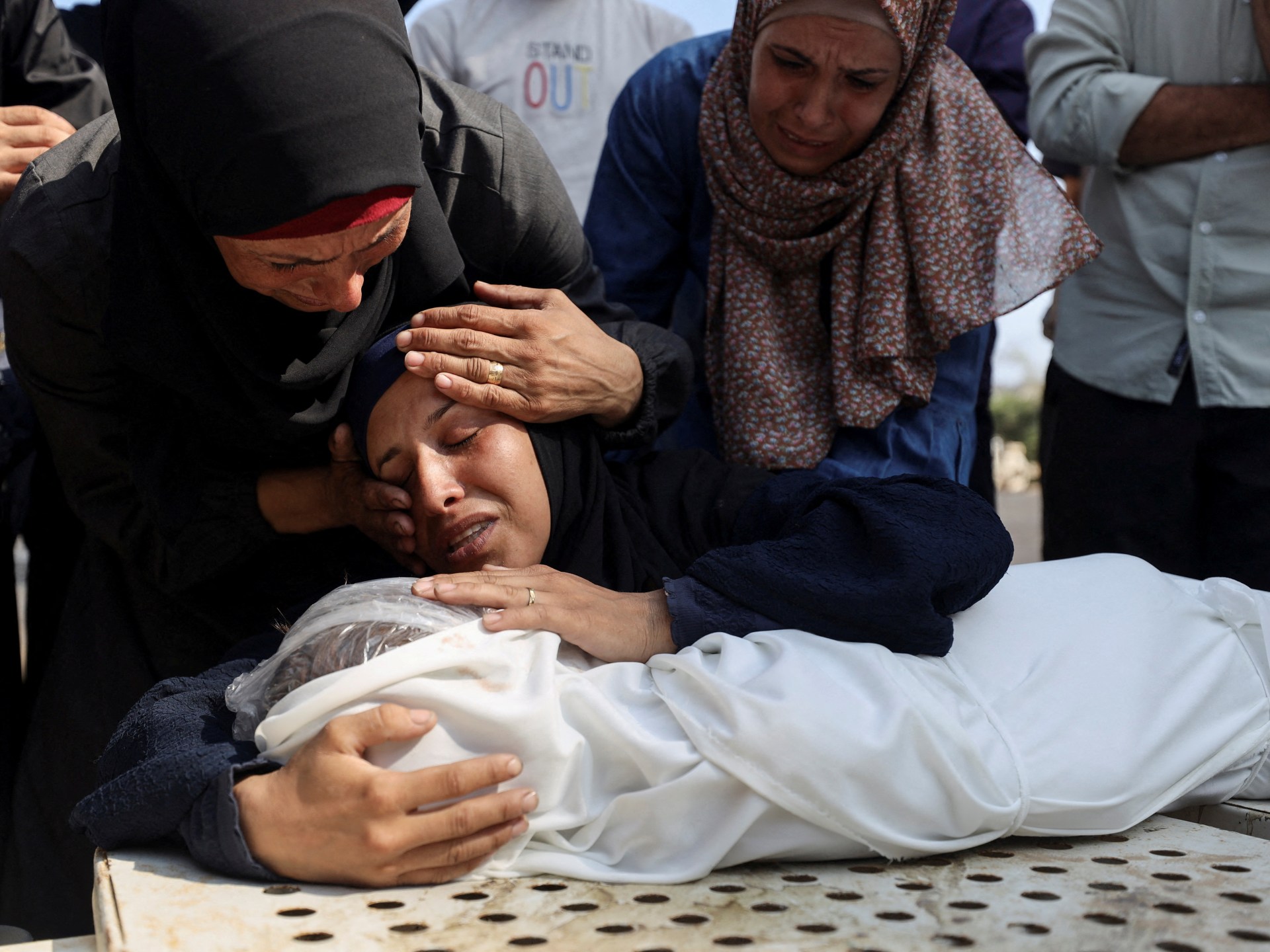Israel has been warned by the European Union about its actions in Gaza as the world’s hunger crisis worsens, with at least 101 Palestinians dying from starvation.
The EU’s foreign policy chief, Kaja Kallas, issued the warning on Tuesday as the US announced this week that the special envoy for talks on a ceasefire in Gaza would be traveling to Europe.
Kallas stated in a post on X that “any option is open to discussion” if Israel doesn’t fulfill its promises to increase humanitarian aid to the besieged enclave.
She added that she had spoken with the Israeli Minister of Foreign Affairs Gideon Saar to “remember our understanding of aid flow” and that the Israeli military was required to stop killing civilians at distribution points.
Following a meeting of the EU to review its relations with Israel over the country’s growing criticism of its occupation of Gaza, Kallas claimed that Israel had agreed to improve the humanitarian situation there.
There were also promises to increase aid truck numbers, crossing points, and routes to distribution locations.
However, according to aid officials, the flow of humanitarian aid into Gaza has not increased despite the agreement.
Meanwhile, the US announced that Steve Witkoff, Trump’s envoy, will be visiting a European nation for talks on a truce and the creation of a “corridor” for aid to Gaza. According to media reports, he might then travel to the Middle East to continue his discussions.
Strong hope
Witkoff will visit the Italian city of Rome on Wednesday, according to Axios, and on Thursday will meet with senior Qatari envoy Ron Dermer and Israeli Minister of Strategic Affairs Ron Dermer.
According to the website, Witkoff will travel from Rome to Doha, Qatar, toward the end of the week if progress is made, citing two US and Israeli sources with knowledge of the details.
The US State Department stated to reporters that Witkoff was traveling to the area with “a strong hope that we will come forward with another ceasefire as well as a humanitarian corridor for aid to flow.”
Further information about the corridor was declined by spokesperson Tammy Bruce.
As we all know, this could be a dynamic that is constantly changing, but I would caution against that.
Israel stopped all goods from entering the country in March, but starting in May, it has started distributing aid gradually, primarily through the Gaza Humanitarian Foundation (GHF), which is supported by the US, and by avoiding the UN.
Since the GHF began its operations in late May, more than 1, 000 Palestinians have been killed by Israeli forces in south and central Gaza, according to the UN.
The GHF sites were or were close to the victims’ deaths.
The deaths come at a time when Gaza’s population is rising, with health officials reporting 80 children among the 101 deaths reported since the war started.
The majority of deaths occurred recently.
The total number of victims, including four children, was 15 on Tuesday alone.
Israel disputes the UN’s “false and exaggerated statistics” regarding the killings at its aid sites, while the GHF also rejects what it claims are “false and exaggerated statistics.”
Qatar demands more regulation.
For months, the US, Qatar, and Egypt have been pressing for a ceasefire between Israel and Hamas, but they have so far failed to find a solution.
Through the mediation, the two sides have been talking about a US proposal for a 60-day truce where Hamas would release Palestinian prisoners and allow humanitarian aid. They would also begin negotiations to put an end to the war in its entirety during that time.
Despite some minor improvements, Hamas and Israel continue to disagree on how far Israeli troops will withdraw after a ceasefire is reached, according to officials.
Meanwhile, Qatar has urged Israel to put more pressure on the US and the rest of the world.
Majed al-Ansari, a representative for the Israeli government, stated at a conference that “the Israeli government does not view Palestinians as human beings” and that Middle Eastern security has been threatened by Israel’s careless actions, not just in Gaza but also in Yemen, Syria, and Iran.
The conditions remain, but we are optimistic about the ceasefire talks. The terms of the talks won’t change, he said if there is no change to the Israeli directive to not reach a deal and to sabotage any discussions. If there isn’t serious pressure from the international community, particularly the United States, the situation will change.
Source: Aljazeera

Leave a Reply